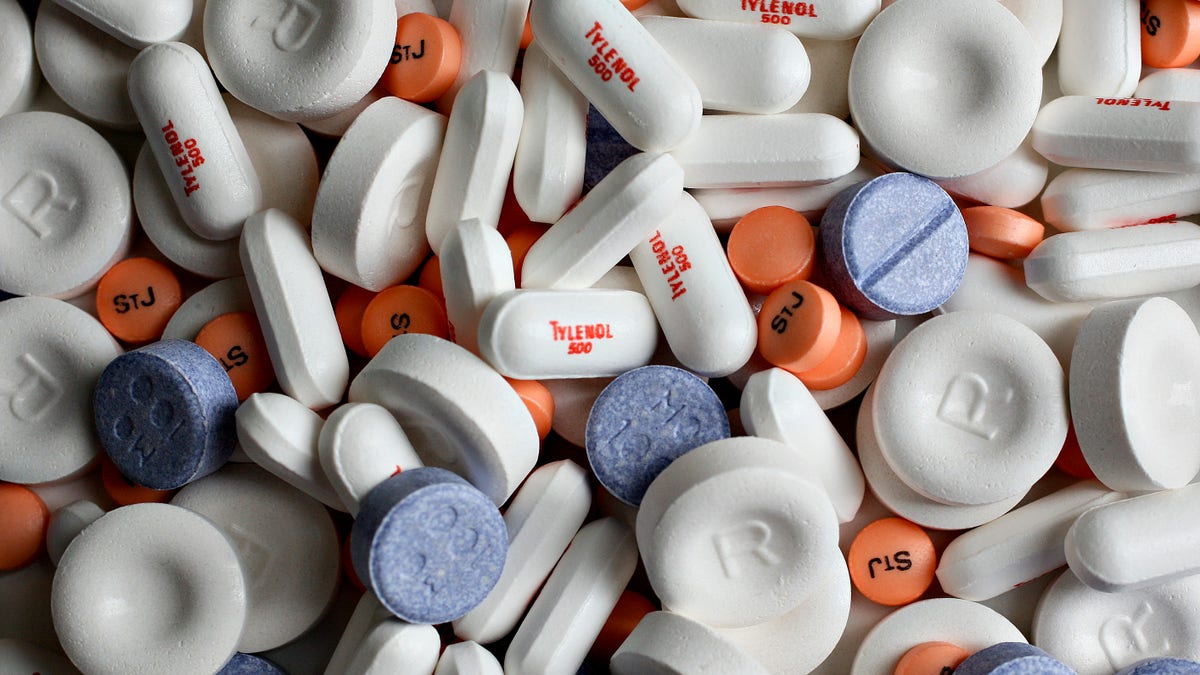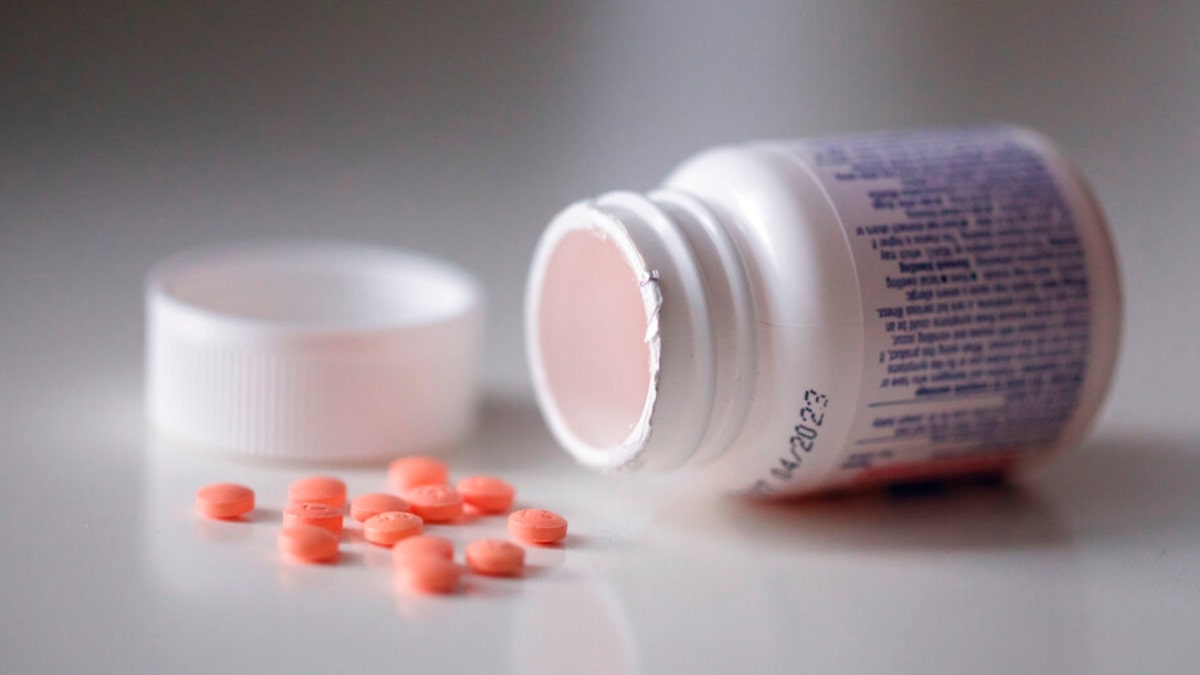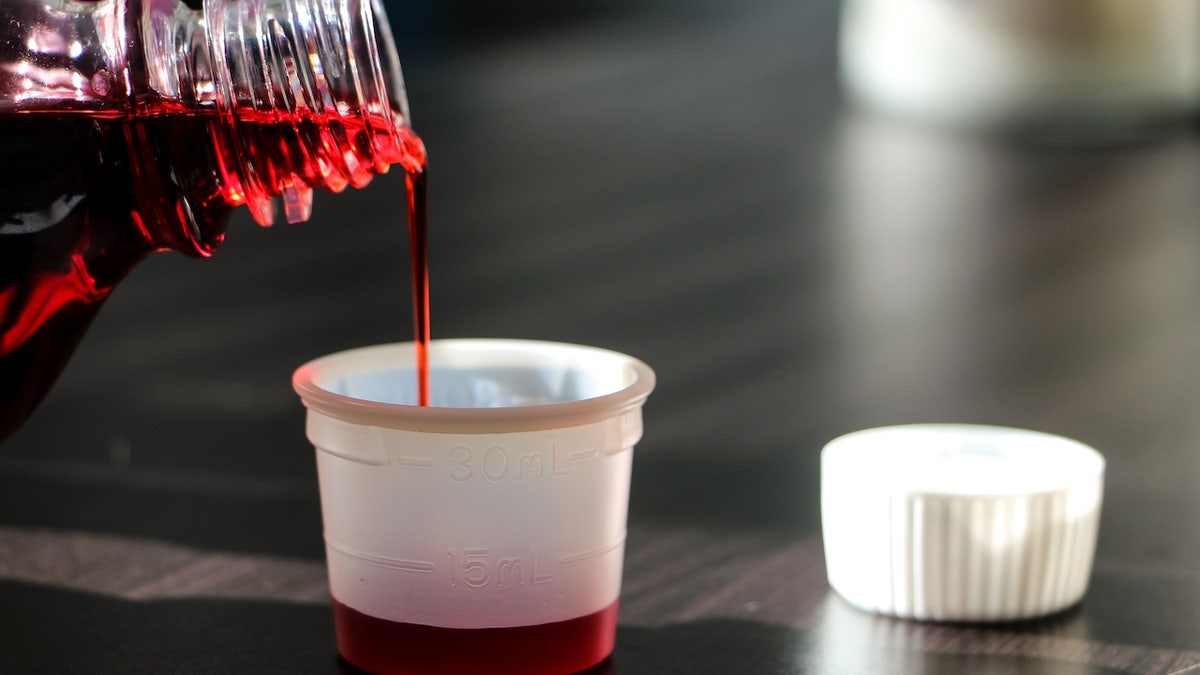Health
Daily aspirin after a heart attack can reduce the risk of future events, study finds

For people who have previously had a heart attack, taking a daily aspirin could reduce their risk of a repeat cardiac event or stroke, according to a recent Danish study.
The findings were presented at the ESC Congress 2023 in Amsterdam this week.
“Our findings support current clinical guidelines on aspirin therapy following myocardial infarction (heart attack),” said study author Dr. Anna Meta Kristensen of Bispebjerg and Frederiksberg Hospital in Denmark, in a statement provided to Fox News Digital.
‘LAUGHTER THERAPY’ IS SHOWN TO REDUCE HEART DISEASE RISK IN BRAZILIAN STUDY: ‘EXCITING TO SEE’
“The key takeaway of our study is that patients who are non-adherent to aspirin therapy following myocardial infarction have an increased risk of a composite outcome consisting of recurrent myocardial infarction, stroke or death compared with adherent patients,” she went on.
“However, the protective effect of aspirin appeared to decrease slightly over time from four years after myocardial infarction and onwards.”
For people who have previously had a heart attack, taking a daily aspirin could reduce their risk of a repeat cardiac event or stroke, according to a recent Danish study. (iStock)
The researchers also found that among women or individuals older than 65, failure to take aspirin was not associated with adverse outcomes.
HEART ATTACK DEATH RISK CAN DOUBLE DURING HEAT WAVES AND HIGH POLLUTION, STUDY FINDS: ‘A PERFECT STORM’
“We recommend that all patients who have had a heart attack stay adherent to their aspirin in accordance with guidelines until randomized controlled trials have proven otherwise and clinical guidelines have been changed,” said Kristensen.
Aspirin is generally recommended for use after a heart attack because it prevents the formation of blood clots.
It does pose a risk of bleeding, however.

“Our findings support current clinical guidelines on aspirin therapy following myocardial infarction (heart attack),” said study author Dr. Anna Meta Kristensen. (iStock)
Researchers analyzed data from 40,114 patients who were 40 years of age and older, who had their first heart attack between 2004 and 2017, who had a stent placed — and who then took aspirin for the following year.
ASK A DOC: ‘HOW CAN I PREVENT HIGH CHOLESTEROL?’
Patients who were taking anticoagulants or P2Y12 inhibitors, both of which prevent blood clotting — as well as those who had another heart attack or stroke during that first year — were excluded from the study.
Every two years after the initial heart attack, the researchers determined which patients were still taking daily aspirin and then compared the rate of recurrent heart attacks.

Aspirin is generally recommended for use after a heart attack because it prevents the formation of blood clots. It does pose a risk of bleeding, however. (Daniel Acker/Bloomberg via Getty Images)
Those who did not continue taking the aspirin had a 29% higher risk of a recurrent heart attack, stroke or death at two years.
The risk increased to 40% at four years, to 31% at six years and 20% after eight years, the study found.
Study had some limitations
“Our results should be interpreted with caution because they show an association but do not establish causality,” Kristensen told Fox News Digital.
Also, those who didn’t adhere to daily aspirin-taking might have already been predisposed to have poor health outcomes — which she called the “healthy adherer effect.”
“For decades, cardiologists have recommended daily low-dose aspirin — which is usually 81 mg in the U.S.”
“Yet we have made efforts to counteract this possible bias,” she noted. “Our participant selection was limited to individuals who sustained adherence throughout the initial year following their heart attack.”
Because the researchers drew the data from a national registry, they were not able to determine the specific reasons that some patients did not take their aspirin, Kristensen added.

Those who did not continue taking the aspirin had a 29% higher risk of a recurrent heart attack, stroke or death at two years. The risk increased to 40% at four years, to 31% at six years and 20% after eight years. (iStock)
“Furthermore, our findings cannot be generalized to all patients who experience a heart attack,” she went on, “as our study specifically focused on those who received treatment with a coronary stent and were not taking other medications to prevent blood clot formation.”
DAILY USE OF LOW-DOSE ASPIRIN MAY INCREASE ANEMIA RISK IN HEALTHY OLDER ADULTS: STUDY
“With that in mind, the results support current guidelines recommending long-term aspirin after a heart attack.”
Cardiologist Dr. Ernst von Schwarz, who practices in Culver City, California, was not involved in the study but offered his input on the findings.

Aspirin is recommended for “secondary prevention” but not “primary prevention,” a cardiologist noted. (AP Photo/Emma H. Tobin)
“For decades, cardiologists have recommended daily low-dose aspirin — which is usually 81 mg in the U.S.,” he told Fox News Digital. “This has resulted in a reduction of subsequent heart attacks or any cardiovascular events.”
What did change in the revised guidelines a few years ago was that aspirin is no longer recommended as “primary prevention.”
The American Heart Association recommends low-dose daily aspirin for people who have underlying vascular diseases, such as coronary artery disease or peripheral artery disease, or who have had a stroke or heart attack.
CLICK HERE TO SIGN UP FOR OUR HEALTH NEWSLETTER
“This guidance is called ‘secondary prevention,’ and it has never changed,” von Schwarz said.
“If someone had a heart attack or a stent placed in the past, this patient should stay on daily low-dose aspirin lifelong.”
What did change in the revised guidelines a few years ago was that aspirin is no longer recommended as “primary prevention,” he said.

The American Heart Association recommends low-dose daily aspirin for people who have underlying vascular diseases, such as coronary artery disease or peripheral artery disease, or who have had a stroke or heart attack. (iStock)
“This means we no longer give aspirin to individuals just because they have risk factors for cardiovascular diseases — such as a combination of diabetes, high blood pressure and high cholesterol,” the doctor noted.
The guidelines changed due to the risk of bleeding in the gastrointestinal tract as a result of aspirin use, von Schwarz pointed out.
“This risk can be reduced by taking aspirin with food but not on an empty stomach, preferably at dinner time, which is supposed to reduce the risk of heart attacks and strokes that oftentimes occur in the early morning hours,” he said.

Health
Treating Other Diseases With Ozempic? Experts Weigh In | Woman's World

Sign Up
Create a free account to access exclusive content, play games, solve puzzles, test your pop-culture knowledge and receive special offers.
Already have an account? Login
Use left and right arrow keys to navigate between menu items.
Use escape to exit the menu.
Health
FDA bans red food dye due to potential cancer risk

FDA looks to ban red food dye
Celebrity fitness trainer Jillian Michaels joins ‘Hannity’ to discuss the possibility of the FDA banning red food dye.
The U.S. Food and Drug Administration (FDA) has officially banned red dye — called Red 3, or Erythrosine — from foods, dietary supplements and ingested medicines, as reported by the Associated Press on Wednesday.
Food manufacturers must remove the dye from their products by January 2027, while drug manufacturers will have until January 2028 to do so, AP stated.
Any foods imported into the U.S. from other countries will also be subject to the new regulation.
RED FOOD DYE COULD SOON BE BANNED AS FDA REVIEWS PETITION
“The FDA is taking action that will remove the authorization for the use of FD&C Red No. 3 in food and ingested drugs,” said Jim Jones, the FDA’s deputy commissioner for human foods, in a statement.
The U.S. Food and Drug Administration has officially banned red dye — called Red 3, or Erythrosine — from foods, dietary supplements and ingested medicines (iStock)
“Evidence shows cancer in laboratory male rats exposed to high levels of FD&C Red No.3,” he continued. “Importantly, the way that FD&C Red No. 3 causes cancer in male rats does not occur in humans.”
The synthetic dye, which is made from petroleum, is used as a color additive in food and ingested drugs to give them a “bright cherry-red color,” according to an online statement from the FDA.

Food manufacturers must remove the dye from their products by January 2027, while drug manufacturers will have until January 2028 to do so. (iStock)
The petition to ban the dye cited the Delaney Clause, which states that the agency cannot classify a color additive as safe if it has been found to induce cancer in humans or animals.
The dye was removed from cosmetics nearly 35 years ago due to potential cancer risk.
CLICK HERE TO SIGN UP FOR OUR HEALTH NEWSLETTER
“This is a welcome, but long overdue, action from the FDA: removing the unsustainable double standard in which Red 3 was banned from lipstick but permitted in candy,” said Dr. Peter Lurie, director of the group Center for Science in the Public Interest, which led the petition effort, as reported by AP.

Nearly 3,000 foods are shown to contain Red No. 3, according to Food Scores, a database of foods compiled by the Environmental Working Group. (iStock)
Dr. Marc Siegel, clinical professor of medicine at NYU Langone Health and Fox News senior medical analyst, applauded the FDA’s ban.
“It was a long time coming,” he told Fox News Digital. “It’s been more than 30 years since it was banned from cosmetics in the U.S. due to evidence that it is carcinogenic in high doses in lab rats. There needs to be a consistency between what we put on our skin and what we put into our mouths.”
“There needs to be a consistency between what we put on our skin and what we put into our mouths.”
Siegel said he believes the FDA’s decision could be tied to the incoming new head of the Department of Health and Human Services, Robert F. Kennedy Jr.
“They knew it would have happened anyway under RFK Jr.,” he said. “It is already banned or severely restricted in Australia, Japan and the European Union.”

The food additive also “drew kids in” to a diet of empty calories and ultraprocessed foods, one doctor stated. (iStock)
The food additive also “drew kids in” to a diet of empty calories and ultraprocessed foods, Siegel added.
“It has also been linked to behavioral issues in children, including ADHD.”
Nearly 3,000 foods are shown to contain Red No. 3, according to Food Scores, a database of foods compiled by the Environmental Working Group.
For more Health articles, visit www.foxnews.com/health
The National Confectioners Association provided the below statement to Fox News Digital.
“Food safety is the number one priority for U.S. confectionery companies, and we will continue to follow and comply with FDA’s guidance and safety standards.”
The petition to remove Red No. 3 from foods, supplements and medications was presented in 2022 by the Center for Science in the Public Interest and 23 other organizations and scientists.
Health
How Yvette Nicole Brown Lost Weight and Got Her Diabetes Under Control

Sign Up
Create a free account to access exclusive content, play games, solve puzzles, test your pop-culture knowledge and receive special offers.
Already have an account? Login
Use left and right arrow keys to navigate between menu items.
Use escape to exit the menu.
-
/cdn.vox-cdn.com/uploads/chorus_asset/file/25822586/STK169_ZUCKERBERG_MAGA_STKS491_CVIRGINIA_A.jpg)
/cdn.vox-cdn.com/uploads/chorus_asset/file/25822586/STK169_ZUCKERBERG_MAGA_STKS491_CVIRGINIA_A.jpg) Technology1 week ago
Technology1 week agoMeta is highlighting a splintering global approach to online speech
-

 Science6 days ago
Science6 days agoMetro will offer free rides in L.A. through Sunday due to fires
-
/cdn.vox-cdn.com/uploads/chorus_asset/file/23935558/acastro_STK103__01.jpg)
/cdn.vox-cdn.com/uploads/chorus_asset/file/23935558/acastro_STK103__01.jpg) Technology6 days ago
Technology6 days agoAmazon Prime will shut down its clothing try-on program
-

 News1 week ago
News1 week agoMapping the Damage From the Palisades Fire
-

 News1 week ago
News1 week agoMourners Defy Subfreezing Temperatures to Honor Jimmy Carter at the Capitol
-
/cdn.vox-cdn.com/uploads/chorus_asset/file/25826211/lorealcellbioprint.jpg)
/cdn.vox-cdn.com/uploads/chorus_asset/file/25826211/lorealcellbioprint.jpg) Technology6 days ago
Technology6 days agoL’Oréal’s new skincare gadget told me I should try retinol
-
/cdn.vox-cdn.com/uploads/chorus_asset/file/25832751/2192581677.jpg)
/cdn.vox-cdn.com/uploads/chorus_asset/file/25832751/2192581677.jpg) Technology2 days ago
Technology2 days agoSuper Bowl LIX will stream for free on Tubi
-

 Business4 days ago
Business4 days agoWhy TikTok Users Are Downloading ‘Red Note,’ the Chinese App













